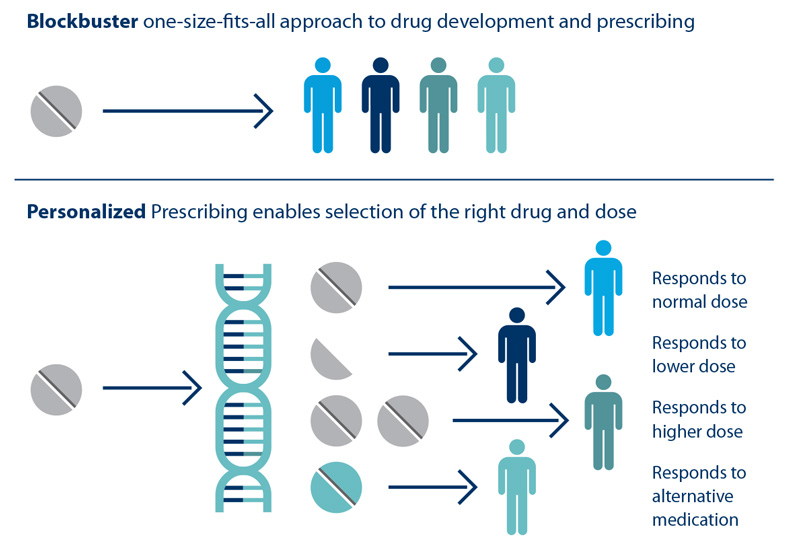What is CYP2D6?
Enzymes are particularly important in the processing of medicines and drugs. They determine how our bodies are going to handle the medicines we take, and if those medicines are going to help us feel better or not.
A specific enzyme family called cytochrome p450 2D6 (CYP2D6) is responsible for the breakdown of 25 percent of commonly prescribed medications including some pain relievers like codeine, antidepressants, select heart and high blood pressure medications, tamoxifen, and some antiepileptic drugs. When a medicine is broken down, it becomes more or less potent, depending on the medicine. A part of DNA known as the CYP2D6 gene, determines how well the CYP2D6 enzyme works. Knowing your CYP2D6 status is very important because it will provide information about which drugs might be best for you. Understanding which group you are in may help your doctor select the right medication and dose for you.

How Can I Find Out My Child’s CYP2D6 Status?
Nicklaus Children’s Hospital has a research study that includes CYP2D6 status testing in children.
- The study can be completed in a single visit.
- After signing a consent form, we will obtain a sample from your child, usually by lightly rubbing the inside of the cheek.
- We will also ask you some questions about genetics and your child’s lifestyle.
- You will receive the CYP2D6 status results in about 4-6 weeks.
- The results will be returned to you, your child’s doctor, and your child’s referring physician, if applicable.
- Depending on CYP2D6 status, one free follow-up call with a genetic counselor or pharmacogenomics specialist will be offered.
Interested in participating?
For more information, please contact Rafaela Solano, RN at 305-662-8346, or via email
clinicalresearch@mch.com.